It’s official. We are in Texas.
We have crossed the border from New Mexico and stopped at the first Information Centre. We have picked up our “Don’t Mess With Texas” and our “Drive Clean Across Texas” garbage bags and a map of the Big Bend National Park area. We are ready. It has been a long time coming. We have travelled from our Yukon home in Whitehorse for twelve of the last fourteen years looking for that elusive temperature thetas neither “too darn hot” or “too darn cold”.
For about the last eight trips we have had Texas and Big Bend on our bucket list. Each year it looked further away. Adding another two or three thousand miles to a winter getaway that is an average round trip of ten thousand miles just seemed a bit much.
We have over 90,000 kilometres on our three-year-old Unity. It drives like a dream and gets great fuel mileage but it is still a long haul.
In the northern portion of our jaunt, we get good use of our furnace. In the south, it’s our solar panel. It manages camera batteries, our computer, iPads, flashlight, toothbrushes, and a razor all topped up. We spend a lot of time off-grid and often go over a week or more without moving or plugging in.
We don’t get much use of the air conditioner. State and federal parks often have restricted hours and some areas don’t allow generators at all.
This year, with my seventy-fifth birthday occurring in March, it looked like Texas may be a “now or never” sort of thing. My wife Joyce and I and our thirteen-year-old dachshund Marley decided to bite the bullet and go for it.
We studied the map and headed for El Paso, quickly discovering it is not the little cowtown we had been lead to believe by western music and old movies.
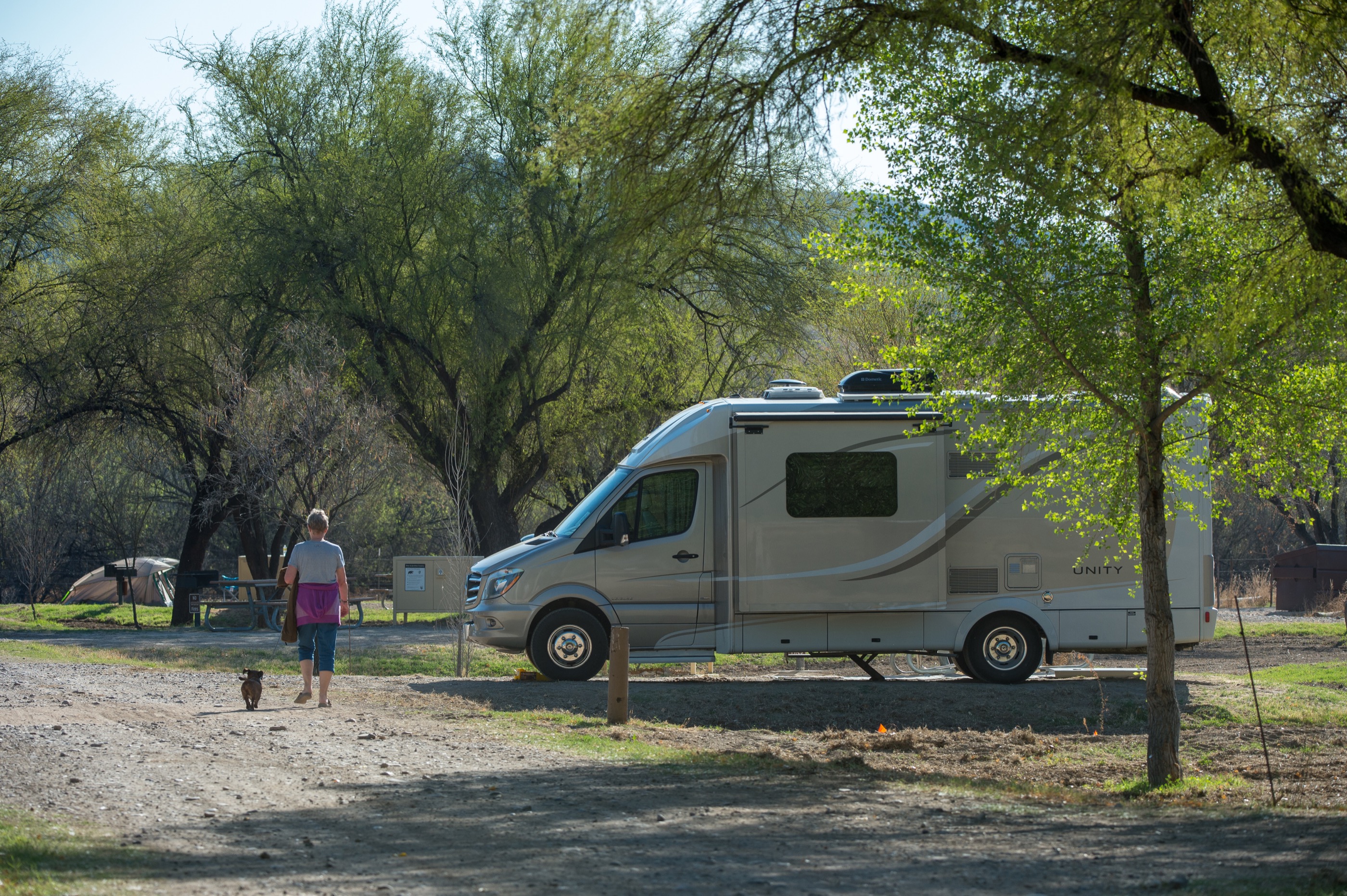
We know things are big in Texas but I had no idea how big. It took over three-quarters of an hour, driving at highway speed, with at least four lanes of “high noon” traffic, to make it through the city. With dozens of overpasses, and more under construction, it was a little daunting for a couple who have spent most of their lives in the wilds of northern Canada, but we made it through dent free.
Big Bend wasn’t what we expected (the Rio Grande seems little more than a creek) but the whole area is big and is beautiful. Campgrounds were lovely and full of friendly RVers. Rio Grande Village Campground was a busy place and we were invited to sit and listen to an impromptu music jam. We walked over in the dark and truly enjoyed the evening.
The next night was that Goldilocks temperature we were looking for. About 10 p.m. we set up our chairs next to the motor home and settled down with a glass of wine to enjoy the warm, quiet darkness. This is rather new to us. Warm summer evenings in the Yukon are bright enough to read by.
Marley was sitting on my lap and we were all relaxed in the darkness. Our awning lights weren’t on—Joyce says they are too bright and bother the star-watching “dark sky” campers. There weren’t many stars, but a full moon kept peeking between heavy clouds.
Marley made a couple of low comments, which we thought were just about the weather. It then struck me that the wine might be stronger than usual, as I was sure I saw the rocks moving in front of us. The further thought reminded me that there were no rocks.
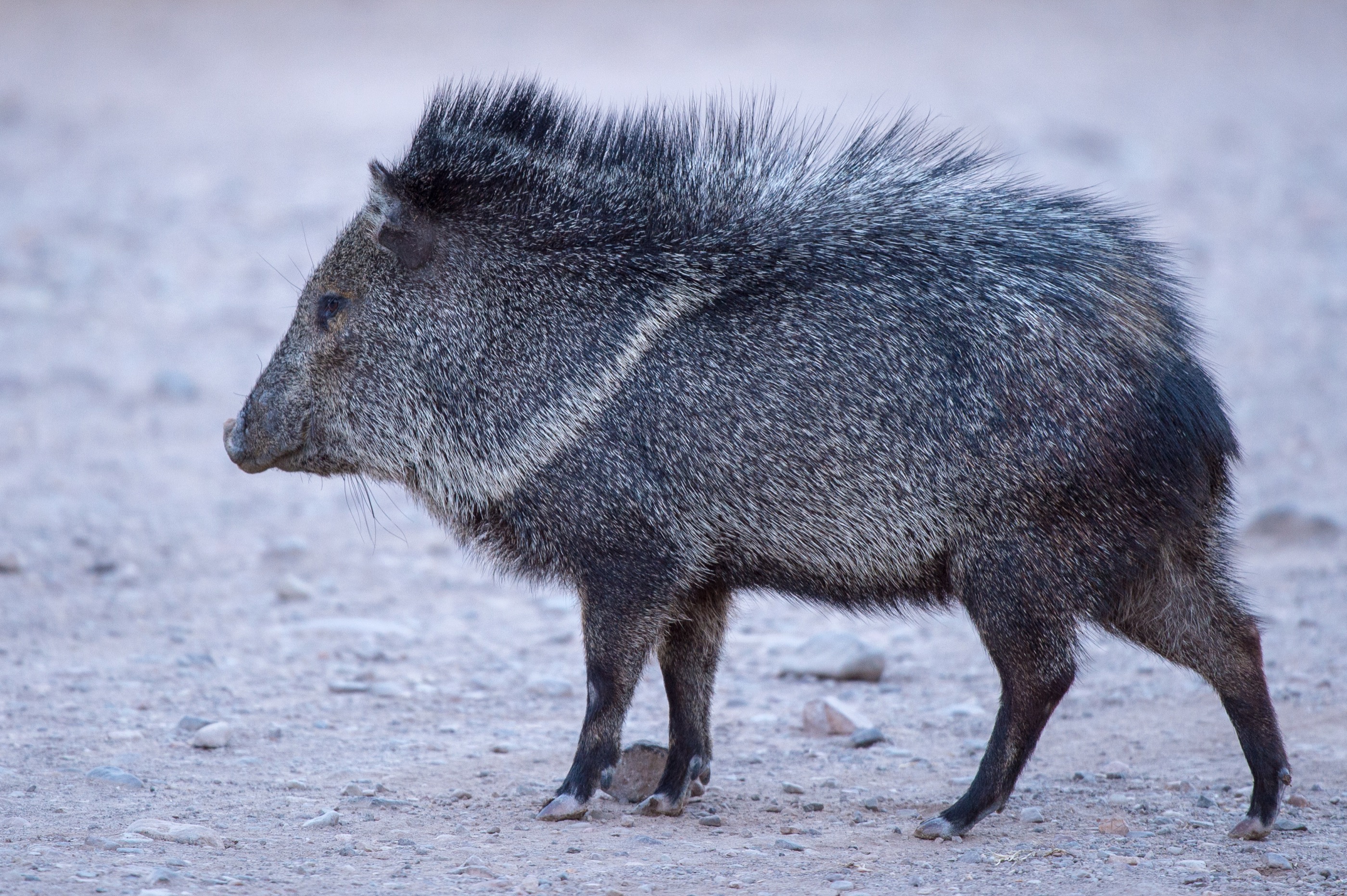
Digging out our little flashlight we discovered we were sitting in the middle of a herd of javelina, the closest one within twelve feet of us. The light didn’t bother them in the least and we could now see about twenty of them.
For those who don’t know, javelina look and act like wild pigs. They have tusks like a boar and can be rather nasty little critters. They can raise havoc with one’s pets or even your own lower extremities. They apparently go straight to attack mode if they feel threatened and can give a whole new meaning to the term “ankle biter”.
Javelina is really collared peccaries and is more closely related to hippos than pigs. They are also a little touchy about being called a pig. They even have their own line of T-shirts, featuring a photo of a relative and an underline that reads “Don’t Call Me A Pig”.
For the first few years of southern travel we had seen only pictures of them but of late they seem to be plentiful. At our next campsite, they came through midday so I could get photos. Eventually “the pigs” had their fill of new green grass shoots and didn’t get excited. They wandered off, leaving us with a different attitude about the dark.
We will probably get more use out of our awning lights in spite of the star-watchers and we won’t be wandering between campsites without a flashlight. We also will pay more attention to what Marley is telling us.


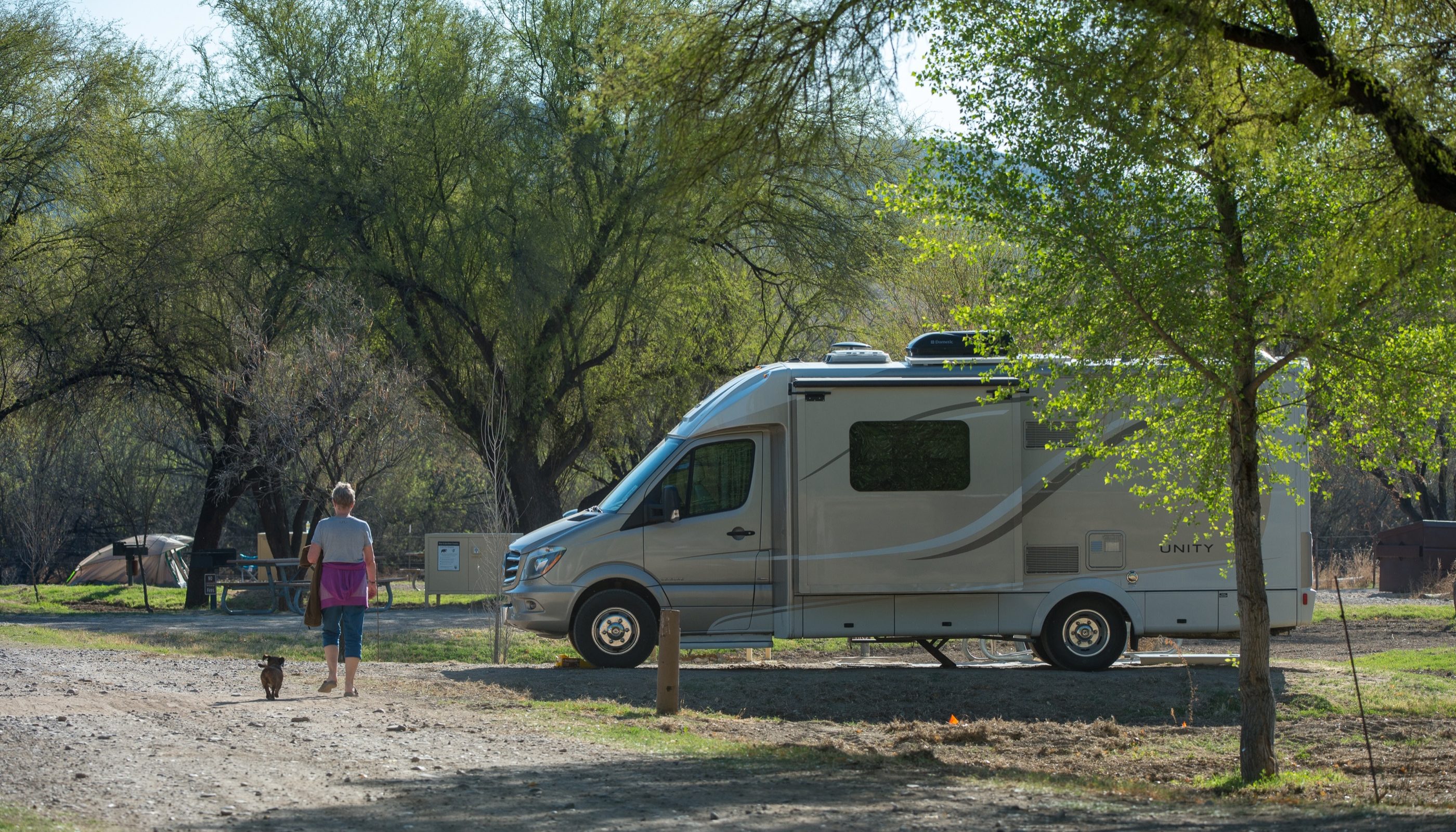
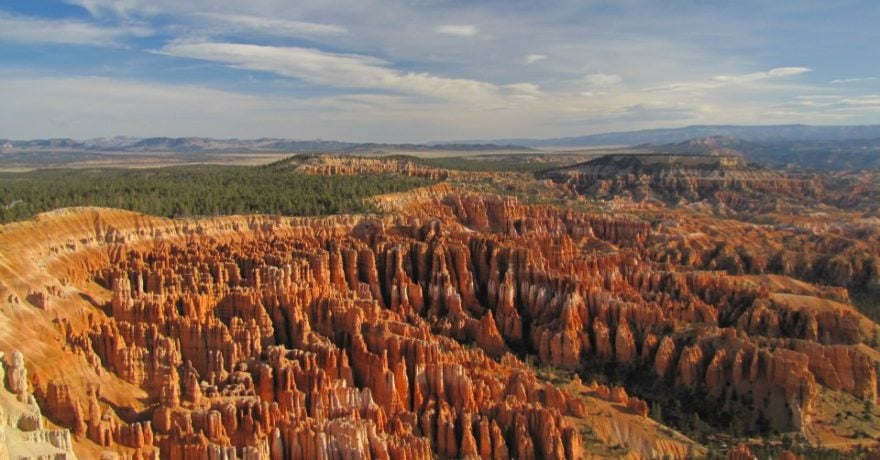
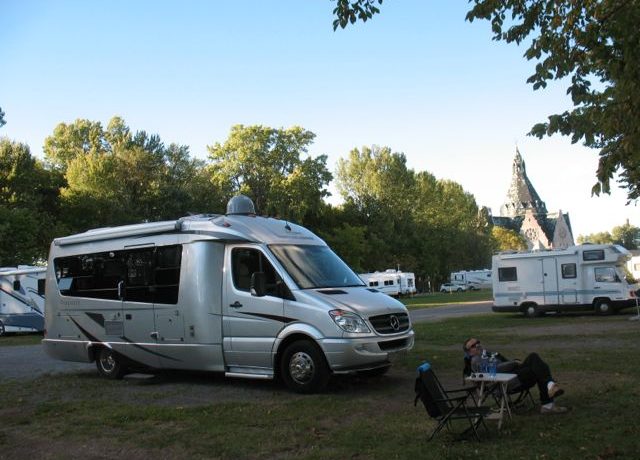
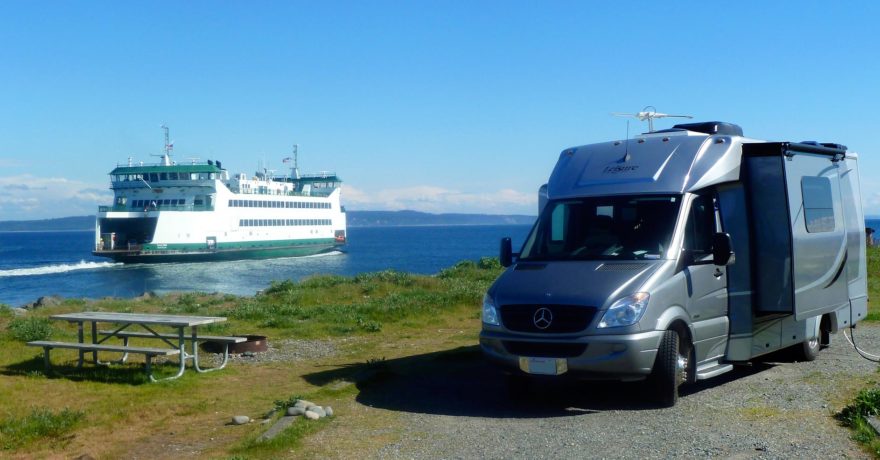
Comments